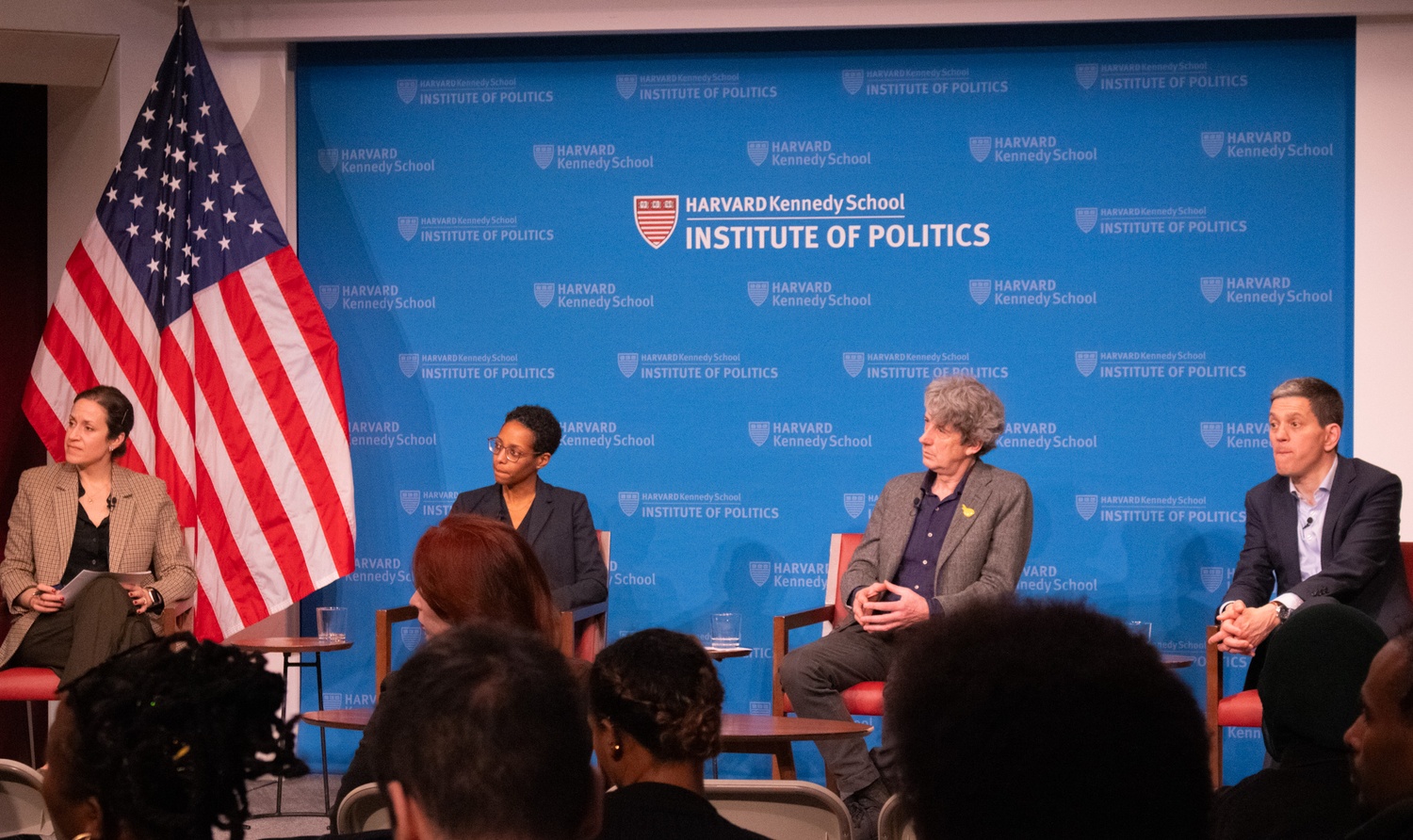
News
Summers Will Not Finish Semester of Teaching as Harvard Investigates Epstein Ties

News
Harvard College Students Report Favoring Divestment from Israel in HUA Survey

News
‘He Should Resign’: Harvard Undergrads Take Hard Line Against Summers Over Epstein Scandal

News
Harvard To Launch New Investigation Into Epstein’s Ties to Summers, Other University Affiliates

News
Harvard Students To Vote on Divestment From Israel in Inaugural HUA Election Survey
Panelists Condemn Weak International Response to Sudan at IOP Forum

Experts in African politics and international conflict called for renewed attention and a stronger global response to Sudan’s civil war at an Institute of Politics forum on Tuesday, exactly two years after the conflict began.
Quoting former President of South Africa Thabo M. Mbeki, Alex de Waal, executive director of the World Peace Foundation, said that “the world has failed Sudan for its paralysis in action” and later condemned the lack of coherent response by multinational organizations, especially as the crisis continues to escalate.
“Where was the UN? Where was the African Union?” de Waal said.
The forum — moderated by Faculty Director of the Center for African Studies at the Harvard Kennedy School Zoe Marks — also featured former Chief of Staff of the African Union High-Level Panel on Sudan Abdul Mohammed, President and CEO of the International Rescue Committee David Miliband, and Faculty Director of MIT-Africa Mai Hassan.
According to Hassan, the Sudanese Civil War has killed 150,000 people, displaced over 10 million residents, and left another 10 million facing food insecurity.
“It’s an understatement to say Sudan is in crisis, that Sudan’s under fire,” Hassan said.
The civil war broke out on April 15, 2023, between the Rapid Support Forces and the Sudanese Armed Forces — two factions of the Sudanese military government which held on to power after a joint uprising in 2019 to overthrow the then-dictator Omar Hassan Ahmad al-Bashir.
“What’s awful about the situation, not only the actual empirics of it, but that it comes on the heels of a euphoric popular revolution that overthrew a despised Islamist regime,” Hassan said.
After the military was temporarily given power to get Sudan through the transition period, “Abdel Fattah al-Burhan, who’s the leader of the Sudanese Armed Forces, decided that he actually really liked being in power,” according to Hassan.
Ultimately, the failure to conduct a peaceful transfer of power set the conditions for conflict, as different military factions had competing interests.
“From that point on, it pretty much became a ticking time bomb,” Hassan added.
According to Milliband, international efforts to establish peace in the region have been “incredibly fragmented” and even “supported the metastasizing conflict.”
“Frankly, the Biden Administration has done next to nothing,” de Waal said.
The political complexity of the conflict has been exacerbated by the role that foreign intervention has played, with several international powers providing military support to opposing sides.

“You have the United Arab Emirates, Cuba, and Saudi Arabia, Turkey, Russia, Iran, Egypt — they’re all in there, supporting different sides,” Milliband said. “They’re supporting them sufficiently that both sides think that they can win and that there’s no reason to stop.”
Moving forward, Milliband underscored the need to “stop things getting worse” by supplying humanitarian aid to the region, pressuring the involved powers to cease the conflict, and building a strong civil leadership in Sudan itself.
“There will be no cease until there is a political process and a political endgame. We should have learned this,” Milliband said.
De Waal agreed that the most direct course of action for outsiders to offer support is through Sudan’s humanitarian emergency response groups.
“They are not only the most effective way of assisting people, they are also the foundation stone for future civic, national democracy,” de Waal said.
Want to keep up with breaking news? Subscribe to our email newsletter.
